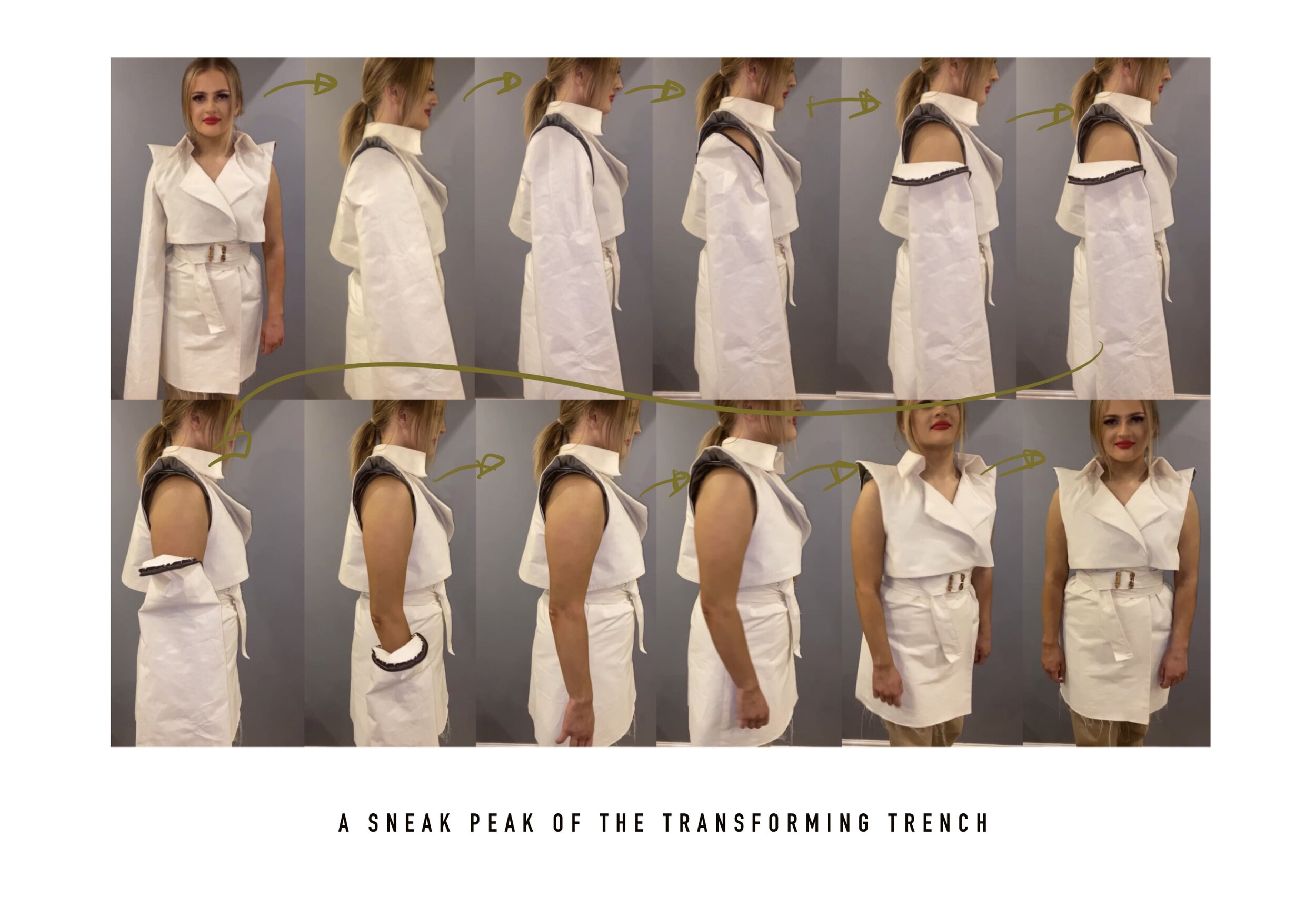Meet GFF Talent, Samantha Jayne Griffiths, a fashion design graduate from the University of South Wales. Inspired by working women, Samantha’s final collection is a capsule of adaptable, modular pieces that can be changed to fit into women’s lives. She has taken cues from mental health research to incorporate embroidered hidden messages of empowerment into the garments. Learn more about her work and plans for the future below!
What is the most valuable thing you have learnt at university?
While at university I have not had the easiest ride, it truly has been a journey. From halfway through my first year discovering I had a brain tumour and having to go back and start again the following summer. University truly taught me to never give up, to keep going and fight for what you want in this life. I have realised life is too short to think what if and is only long enough to appreciate the goals you’ve reached. University taught me to believe in myself and to always keep striving to be better because nobody is perfect but also to celebrate my mistakes as that’s what we learn from.
What was the starting point of inspiration for your final project?
While searching for inspiration for my final project I was inspired by the women around me in my internship. I was inspired by the working women and how every day they put their all into the jobs they were passionate about. This inspired me to create a range for these women, a range that adapted with them, if that was working from home, in the office or drinks after work.
So my inspiration came from 1980s workwear and empowerment through shape and clothing but also looking at mental health and the ability to not be able to get out of bed. My aim was to empower working women even if that simply meant getting up getting dressed and taking on another day. My research into mental health encouraged me to research brain scans and prints for the lining of my garments that sat alongside embroidered hidden messages into the collars and sleeves to encourage and empower.
What form will your final project take?
My final collection will be made up of a range of adaptable garments that show how the range is modular. The adaptability of the range adds longevity as it allows one to buy one look and adapt it to many more instead of constantly buying new looks. Simply adapting the garment by removing a sleeve for instant creates a totally different image
What materials have you used and how did you source them?
My range is made up of a mixture of materials from 100% satin and silk to mixed twill and 100% organic cotton to up-cycled and end of line reclaimed fabrics. The collections aim is to be zero waste by recycling the minimal scraps that are left to be weaved into the collections bags and Gillette
How has it evolved from your initial ideas and what have you learnt along the way?
From the start my project has taken a totally different turn, I started the project by just emphasising on the empowerment of women and ended it by exploring the idea of adaptability and making garments as modular as I can. I have learnt that for women to feel empowered they do not need huge shoulder pads and flamboyant prints, they need to feel comfortable and confident in the clothes they are wearing. From my current feedback, my collection exceeds any expectations I had of achieving this as many women have already requested my designs. My aim is to create minimalist timeless pieces that every woman needs in her work wardrobe. You would be surprised how far a pair of trousers, a white shirt, a trench coat and a dress can go
What are the messages and themes behind your project that you want people to take away? Do explore any topics like diversity, sustainability or politics in your work?
My projects aim is to empower women by creating a work wardrobe they can grow with, a timeless collection that they can adapt with them. To encourage people to adapt the clothes they already have instead of constantly buying new ones.
What’s an aspect of the fashion industry that you’re passionate about fixing or having a positive impact on?
I am most passionate about problem-solving, I do not aim to create any more pointless pieces of clothing but only to solve problems. One of the biggest problems in the fashion industry is everyone’s need to produce collections by seasons causing an overproduction of clothing that has no point of reason, no purpose to any issue only to look aesthetically pleasing
What is your plan once you finish your BA?
When I finish university I aim to take my place in the fashion industry as a women’s wear designer, where I hope to create change and grow in a brand that has my values







